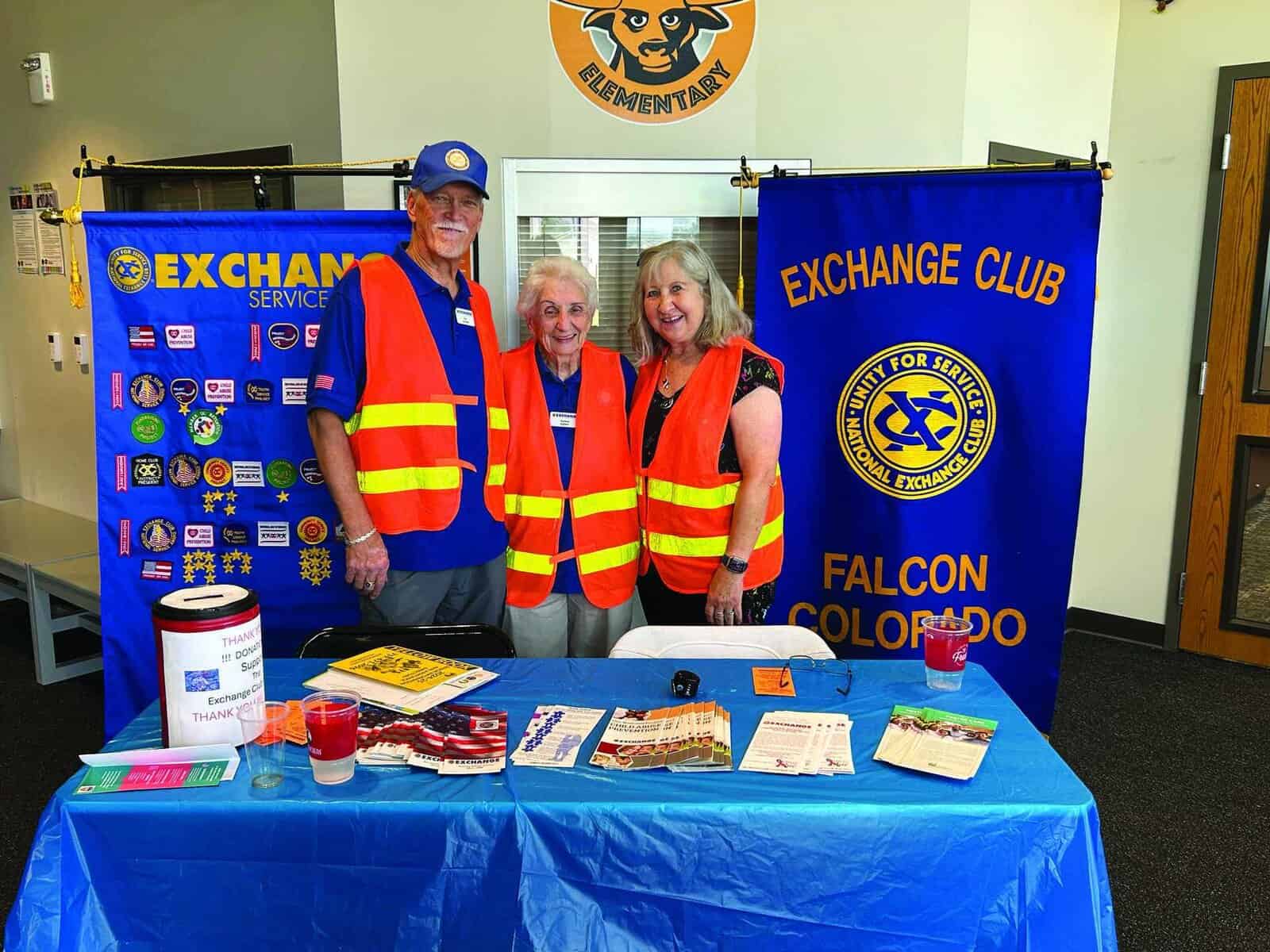Mountain View Electric Association held its annual Lamplighter dinner meeting Oct. 18 at The Wedgewood Wedding and Banquet Center in Black Forest. Mike Collins, the Falcon Fire Protection District’s chaplain, provided an invocation. Barry Springer, vice president of the MVEA Board of Directors, welcomed guests and explained that the president of the board, Joe Martin, was unable to make it because of attending a meeting of the National Rural Electrical Association, where he also holds a board position. Springer then introduced other directors and their spouses.
Springer informed members that because of inflationary forces and Tri State Generation and Transmission Association’s 8% cost of power increase, the board voted to implement a rate increase, a first in seven years. The rate increase will become effective in January and will be around 6% to 7% and will slightly vary by customer, depending on how and when they use power.
Springer explained the cooperative business model. “We work for you. We do not work for shareholders. We have a very austere business model.” He said when they calculate their rates, they start with costs related to power, maintaining the lines, poles wires, transformers, labor and more. “We calculate all these costs and then we add a modest amount of 4.5%, which is called a rate of return on rate base,” Springer said. “If we were an investor-owned utility, that number would be around 11%.” He said while that is an advantage over a shareholder owned utility, the disadvantage is having many rural customers, which translates into about 10 customers for every mile of electrical lines, as opposed to Colorado Springs that might have 40 to 60 customers per every mile of line. “They have a much greater revenue on their rate base.”
Springer said despite some of the disadvantages, MVEA is competitive. “The 4.5% is invested in equipment as operating capital,” he said. “And we do return the money to the members in the form of capital credits. Yesterday, we voted to return 2.2 million to our members. That money is going back to you.” He added that 80% of the returns will go to members who were members in 2004 and 2005; 20% will go to people who just became members in the past few years.
Springer handed the microphone to Ruth Marks, MVEA chief executive officer.
Marks introduced MVEA’s executive team. She then talked about the MVEA’s seven cooperative principles: voluntary membership; democratic governance; member economic participation; autonomy and independence; education, training and information; cooperation among cooperatives; and concern for community. “We love to be involved in the community and be active,” Marks said. “We have people that sit on boards, we help with events like the Black Forest Festival. Concern for our community is a value that makes us stronger.”
“Tri State has a goal to become 50% renewable by 2025. They are well on their way to achieving their goal. We have about 3,200 members on our system with rooftop solar and more than 1,000 members who have registered their electric vehicles. We just found out today that we will be receiving a grant to bolster our wildfire mitigation practices.”
Ruth Marks, MVEA CEO
She then discussed MVEA’s mission of providing the members with safe, reliable, affordable and responsible service and how MVEA measures up against its own mission. “Tri State has a goal to become 50% renewable by 2025,” Marks said. “They are well on their way to achieving their goal. We have about 3,200 members on our system with rooftop solar and more than 1,000 members who have registered their electric vehicles. We just found out today that we will be receiving a grant to bolster our wildfire mitigation practices.”
They are engaged in a “huge project,” which has many challenges, she said. The project is one of the largest in Colorado: 5,800 miles of fiber is being strung over eight counties, Marks said. “It will take between five and six years to complete.”
She also discussed Operation Round Up — an MVEA program that allows members to round up their bills every month, with the extra money going to various charities.
Springer and Marks wrapped up the meeting by answering questions from members. One members asked whether fees to tie in solar to the grid will be increased, and Marks said yes. To answer a member’s question regarding sources of alternative energy, Springer said, “One of the areas that holds promise is small modular nuclear reactors. There is a demonstration project up in Wyoming funded partially by the U.S. government and Bill Gates. The idea is to retrofit a coal-fired facility into nuclear fueled steam generation. It’s a really good model, because as the coal-fired plants get shut down, we own the land and water rights and we have facilities for connecting them, big switch yards and transformers, so converting these facilities to small modular nuclear reactors is a very good idea. They are extremely safe, much safer than nuclear reactors right now.”
After a few more questions, Springer and Marks thanked the Wedgewood staff for great service and the members for attending.





